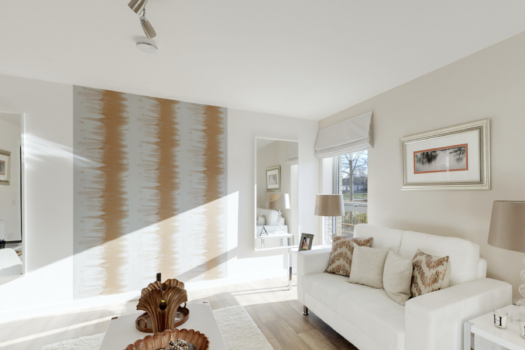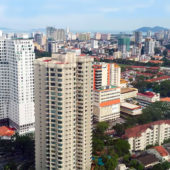Is Stamp Duty Payable When Inheriting Property in Singapore?
IS STAMP DUTY PAYABLE WHEN INHERITING PROPERTY IN SINGAPORE
Inheritance tax (i.e. tax charged on the total market value of the assets of someone who has died) was abolished in Singapore on 15 February 2008. This applies to all assets, including property. However, this does not mean that there are zero fees to pay if you inherit a residential property in Singapore as there may be stamp duties.
Stamp duties are taxes on the purchase of a property. Generally, there is no stamp duty owed for inheriting a property in Singapore if:
- It was a residential property; and
- You inherited it via a valid will, the Intestate Succession Act, or the Administration of Muslim Law Act.
Otherwise, it may be considered a gift or a sale and attract the necessary stamp duties.
Even if there are no stamp duties for the initial acquisition of the inherited property, you may still attract stamp duties in other ways:
- When selling the inherited property: If the deceased acquired the property after 20 February 2010 and the property is sold within the stipulated holding period, you may be required to pay a Seller’s Stamp Duty (SSD). The holding period refers to how long the property has been owned by the deceased. The SSD varies according to the holding period and when it was acquired. You can find out the exact SSD to be paid on the IRAS website.
- When buying new property: Your inherited property will count towards the number of properties you own when calculating the Additional Buyer’s Stamp Duty (ABSD) payable for the new property you intend to buy. This is unless your inherited property is an overseas property or it has been gazetted for compulsory acquisition by the Government. ABSD is the additional stamp duty paid based on the number of properties you currently own. You can check your current ABSD rates here.
Can I Keep the Inherited Property in the First Place?
Singapore has strict property laws and this may affect whether you can keep the inherited property. The rules that apply to you will depend on the type of property you inherited.
When the inherited property is an HDB flat
If the inherited property is an HDB flat, you might need to sell it within 6 months from the date you took ownership of the inherited property if any of the following applies to you:
- You do not meet HDB’s requirements under one of its eligibility schemes. You must satisfy basic requirements on citizenship and the need to be part of a family nucleus. If you are single, you will need to be 35 or older. Click here for more information on HDB’s eligibility schemes.
- You already own an HDB flat. HDB rules do not permit you to own more than one HDB flat at the same time.
- You already own a private property, and the inherited HDB flat had been bought by its previous owner after 30th August 2010. Further, even if the flat had been bought before 30th August 2010, you will still not be able to keep it if the flat had been purchased with government subsidies.
When the inherited property is a private property
If the inherited property is an HDB flat, you may need to sell it if you fall under one of the following situations:
- You are not a Singapore citizen and the inherited property is a landed property: Landed property in Singapore refers to residential property that comes with title to the land. To own landed property in Singapore as a non-citizen, you need to get the approval of the Singapore Land Authority (SLA). The SLA is more likely to give approval if you have been a Singapore Permanent Resident for at least 5 years and have made an exceptional economic contribution to Singapore.
- You are a Singapore citizen but you currently hold an HDB flat within the Minimum Occupation Period (MOP). The MOP is generally 5 years for new flats, but can be 20 years if the flat was bought from the Fresh Start Housing Scheme.
What Other Fees Must I Pay If I Inherit Property and Decide to Keep It?
Apart from stamp duties, your inherited property will also attract maintenance fees and property tax if you decide to keep it.
- Maintenance fees: This can be in the form of conservancy fees for HDB flats or maintenance fees for private condominiums. Condominium maintenance fees may seem quite large if you are not familiar with them. It averages around S$300 to S$500 monthly but can go up as high as S$1,000. Do note that sometimes the MCST fees (i.e. condominium management fees) are payable quarterly, which will result in a larger-looking bill.
- Property tax: Property tax is payable annually on properties, both residential and commercial. Property tax is assessed as a percentage of the annual value of your property. The annual value is based on IRAS’ assessment of the market rental rate of your property. The property tax itself is a progressive one (i.e. from low to high tax rates) with higher-value property attracting a higher tax rate. IRAS also makes a distinction between owner-occupied and non-owner-occupied properties (i.e. where the owner lives and does not live in the property, respectively). The property tax rate is lower for owner-occupied properties. Visit the IRAS website for information on your exact property tax rate.
Inheriting a property can seem like a windfall but there may be hidden costs that you may not be aware of, or able to deal with. This is especially if you have to manage such financial burden of inheritance together with the grief from having lost your loved one.
You might consider consulting with one of our lawyers if you are not sure of the hidden costs associated with your inheritance.
In addition, if you are considering leaving property behind for your loved ones, it may be prudent to check if they would like to inherit such property in the first place, and whether they can manage any hidden costs arising from doing so.
This way, if it turns out that they are neither willing to inherit the property nor potentially able to manage the costs of doing so, then you can start making alternative arrangements for your property after your passing.



